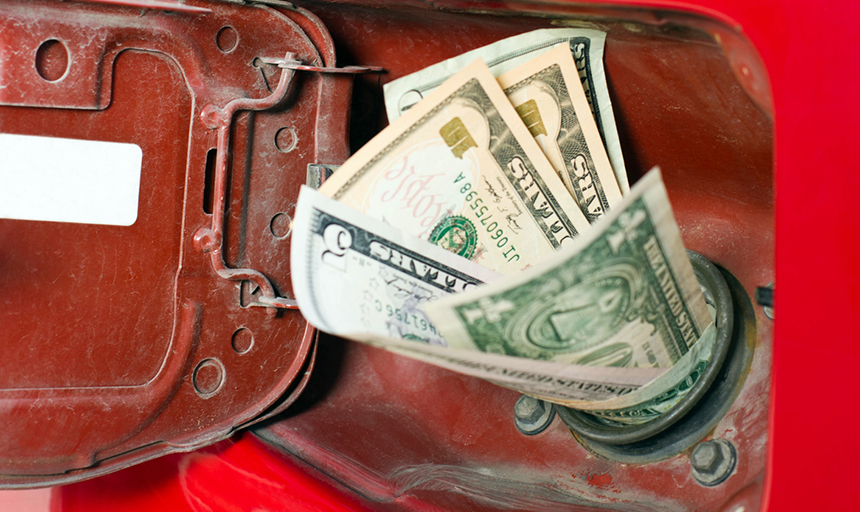Roanoke College Poll: Consumer Sentiment and Inflation Expectations Report
March 09, 2021

Election and COVID-related uncertainty stomp sentiment, price expectations soar
The Virginia Index of Consumer Sentiment fell almost 4.5 points over the last quarter, remaining well below the pre-COVID-19 levels and 10 points below the historic average. The February 2021 value is 82.4. Although the measure rebounded slightly over the summer, politics and COVID frustrations and uncertainty are dragging consumer sentiment down as we move into 2021.
Consumer sentiment sharpened its November retreat making a stark contrast to a year ago. Less than a quarter of Virginians believe that their household finances are better today than they were one year ago and just over one-third believe they will improve over the next year. Less than 10 percent believe that business conditions are currently strong and just over half believe they will improve over the next 12 months. Thirty-seven percent of respondents believe that the next five years will be economically prosperous for the national economy.
Respondents from the Commonwealth are much more concerned about the current economy as measured by the Index of Current Conditions (ICC). The VA ICC is 79.4, about seven points below the national value and three points below the Virginia November 2020 value. Conversely, the nation is quite pessimistic about the future of the economy while Virginians are optimistic, reporting an Index of Consumer Expectations almost 14 points above the national number. The rallying about the future drives the overall consumer sentiment in Virginia above its national counterpart.
Presidential elections influence reported consumer sentiment, as the outcomes frame how respondents view their prospects in the short-term. Those who affiliate with the Democratic Party gained optimism over the second half of 2020, but lost ground at the start of 2021. Sentiment also fell for those who affiliate with the Republican Party , suggesting the massive influence of COVID-related uncertainty for all Virginians.
Virginians anticipate an increase in overall prices in 2021 and beyond. Both short- and long-term expectations increased dramatically. Individual beliefs about prices are heavily influenced by what one sees on a regular basis (ex. fuel and food prices). Nationally, gas prices increased by over 30 cents in the past month to $2.77 per gallon, which is an increase of 40 cents over the past 12 months. A variety of culprits are to blame including reduced refinery utilization due to a harsh winter and increased demand as more people are vaccinated and the weather improves.

The Virginia Consumer Sentiment and Inflation Expectations Report is sponsored by Atlantic Union Bank.
Analysis
“Consumer sentiment in the Commonwealth sharpened its retreat at the start of 2021 driven by COVID-related uncertainty,” says Dr. Alice Louise Kassens, John S. Shannon Professor of Economics and Senior Analyst at the Roanoke College Institute for Policy and Opinion Research. “Uncertainty is a powerful force. The economy continues to recover with the unemployment rate in Virginia falling to 4.9 percent in January 2021, well off the 11.2 percent of April 2020. But people are still worried about the unknown. I anticipate that as vaccine supply and distribution expand across the Commonwealth, individual sentiment will recover. While price expectations jumped dramatically this quarter, it is too early to tell if they will manifest as an actuality. Expectations can be a self-fulfilling prophesy and are often underestimated. Nationally gas prices increased 31 cents in the last month, which is likely driving individual beliefs.”
Methodology
Interviewing for The Virginia Consumer Sentiment and Inflation Expectations Report was conducted by The Institute for Policy and Opinion Research at Roanoke College in Salem, Virginia, between Feb. 14 and Feb. 27, 2021. A total of 628 Virginians were interviewed. Telephone interviews were conducted in English.
The landline sample consisted of random-digit numbers generated in proportion to the Virginia population so that all residential telephone numbers, including unlisted numbers, had a known chance of inclusion. Cell phone samples were purchased from Marketing Systems Group and Call Delivery Systems. Cellphones comprised 57 percent of the completed interviews.
Questions answered by the entire sample of 628 respondents are subject to a sampling error of plus or minus approximately 4.0 percent at the 95 percent level of confidence. This means that in 95 out of 100 samples like the one used here, the results obtained should be no more than 4.0 percentage points above or below the figure that would be obtained by interviewing all Virginians who have a home telephone or a cell phone. Where the results of subgroups are reported, the sampling error is higher.
Quotas were used to ensure that different regions of the Commonwealth were proportionately represented. The data were statistically weighted for gender, race, and age. Weighting was done to match Virginia census data. The margin of error was not adjusted for design effects due to weighting.
A copy of the questions and all toplines may be found here.
For more about the Institute for Public Opinion Research, click here.
Contact Name: Dr. Alice Louise Kassens, Senior Analyst, IPOR
Contact Phone: (540) 375-2428 Office
Contact Email: kassens@roanoke.edu